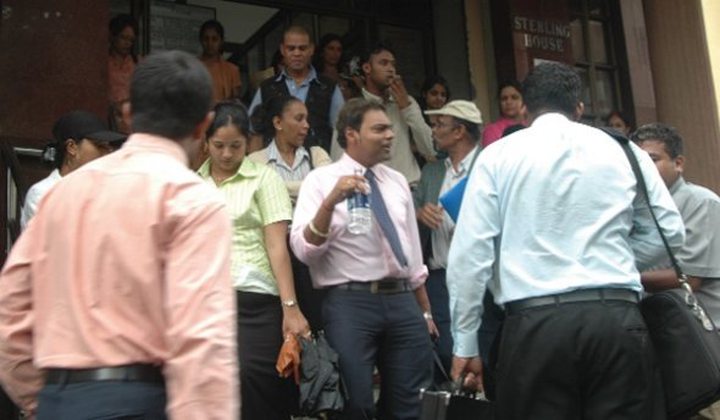Public Sector: Revised Pay, Anomalies PRB, +15% on Rs 4.7 Billion

At the end of the week, very few details have leaked about the possibility that the main recommendations of Omission and Commission Anomalies are endorsed in the deliberations of the Council of Ministers tomorrow. The main issue of concern to public sector employees and unions in the public focuses on the quantum of salary revision proposed by the commission to correct anomalies Manraj report Aujayeb last year.
Information overlap conducted with reliable and consistent sources argue that we can expect a cost representing additional funding of around 15% on the budget of Rs 4.7 billion with the implementation of the previous PRB report from 1 January. With the adoption of the report's proposals Manraj, the government must find an additional order of Rs 800 million if the quantum is confirmed, a total cost greater than Rs 5.5 billion for the two reports.
Leaders of different trade union federations in the public and parastatal bodies rely on a minimum wage revision of Rs 2000 for employees at the bottom in an attempt to catch up on high wages. Besides the purely monetary Manraj report will also look into the aspect of Fringe Benefits, including a compensation formula for officials to leave not taken as well as other Schemes.
The side of the commission Manraj, it suggests that the cost of financing the adoption of the report on anomalies has already been discussed at the highest level with the Ministry of Finance. But other sources indicate that the Implementation Date of the report on anomalies and Omissions may represent a surprise to officials and employees of quasi-public agencies.
The date of entry into force of the recommendations of salary revision could be 1 January 2014 instead of 1 January, or with a lag of one year. This event is at the center of discussions between the Ministry of Finance and the commission for a few days prior to the submission of the report to the government.
Those who advocate the date of 1 January 2014 recall that this budget the Government has made no provision for additional funding report Manraj or Rs 800 million. Therefore, the Ministry of Finance will engage in an extensive exercise to reallocate funds in the budget this year and it would be preferable to "postpone" the payment of correcting anomalies in the next budget in November. They also joined in the argument since the end of last year the Bank of Mauritius, which reiterates the fact that the payment of the PRB officials is one of the main factors fueling the resurgence of inflation in Mauritius.
In the ranks of the unions, we prefer to wait for the official publication of the report on anomalies Manraj before making comments about the possible date of Implementation. The main argument unionists is that the establishment of the anomalies Omission and Commission is "a promise of Prime Minister after the protests against the report of the PRB." They add that "the correction of anomalies must intervene when the initial recommendations were adopted and not with a time lag."
At the Government House, in the weekend, it refrains from venturing to comment on the report's recommendations Manraj, both in terms of cost or Implementation Date without being aware of the content of the report to be presented shortly to the government to be adopted.





